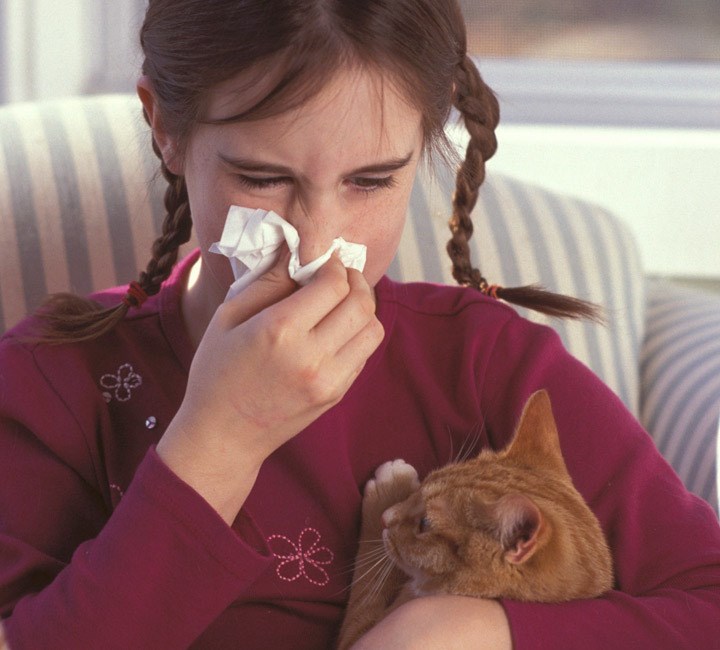Bad news, allergy sufferers — winter won’t necessarily give you a break.
“There are what we call perennial allergens that never really go away,” said Dr. Anne Ellis, professor and chair of the division of allergy and immunology at Queen’s University.
“Things like house dust mites, which are microscopic spider-like insects that live in our mattress and pillow, certain moulds can live indoors in homes, and obviously if people have pets — cats and dogs — they usually allow them in the house and they’re not leaving, because it’s wintertime.”
Mice also like to come inside during the winter, said Dr. Paul Keith, an associate professor in McMaster University’s division of allergy and clinical immunology. These rodents can also be an allergy trigger for many people, he said, if they get into the house.
Part of the problem is that we spend more time indoors during the winter, Ellis said, which is not a great environment for allergy sufferers.
In winter, people usually keep their houses closed up and don’t have air conditioners running or windows open – which means allergens can build up in the closed area, she said. Heaters can make the air drier, which is also irritating for some.
These aren’t the same as seasonal allergies though.
“There’s no pollen in the air right now,” she said. “It’s tempting to think that there’s something in the air when you have these intermittent mild melts. But usually what’s happening there is that people who have allergies, they have hypersensitive airways anyway and so any changes in climate can trigger irritant-type symptoms in the nose.”
Winter is also cold season, she said, and it can be tricky to tell the difference between an allergy and an infection.
“Allergies typically would not cause you to have a fever, and you wouldn’t get a sore throat.”
Swollen lymph nodes and a general “icky, not-great feeling” are also probably a cold of some kind, not an allergy, she said.
If you do have allergies, there are things you can do to help lessen your symptoms, starting with trying to eliminate the allergen in your home.
“With pets, you want to try to keep the pet out of the bedroom, so that [in] the room where you spend at least eight hours a day, you’re not exposed to a higher level [of allergens],” Keith said.
“For dust mite allergy, we recommend covering the pillow and mattress to reduce your exposure,” he said.
You should also change your sheets and pillowcases every week and wash them in hot water, Ellis said.
Similarly, Keith said, many people don’t wash their winter coats very often, and these can also attract dust mites.
Air purifiers can make a difference, Ellis said, but they must be certified allergy-asthma friendly.
You may also want to try tackling your symptoms with medication. Saline nasal sprays can help wash allergens out of your nose, Keith said.
“Pharmacies sell lots of very effective non-sedating antihistamines,” Ellis said. She strongly recommends second-generation antihistamines, sold under brand names like Claritin and Allegra, over older antihistamines like diphenhydramine (Benadryl), because they have fewer side-effects and are more effective.
Nasal steroid sprays can also be effective, she said, though people need to be aware it can take a few days for the effect to kick in. “You need to use it every day for at least a week to notice a significant improvement in your symptoms.”
And, she said, if you find over-the-counter options don’t work, you should consult a primary care provider or an allergist.
“Allergy specialists love to see patients even with minor concerns, because we really like helping people for things that we know can be a burden to the patients who experience them.”
